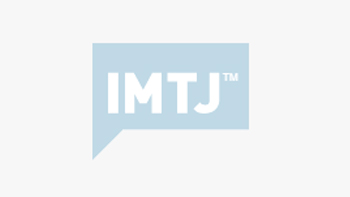Dubai group MRI has filed a United States Patent & Trademark Office (USPTO) patent for technology that enables integration of medical tourism with health insurance.Called Offsurance, the medical tourism product claims to be a novel method of underwriting and implementing low premium health insurance incorporating medical tourism. It will take months for the patent to either be approved or denied, and more software patents are refused than accepted.
Dr Fazal Raheman, CEO of MRI said: “Offsurance is a path-breaking technology that can potentially reduce the US healthcare expense by over 50 percent. There is absolutely no intellectual property precedence in this exponentially growing segment of healthcare. Because Offsurance is the first and the only pending patent, we target the grant of the patent within the next six to nine months under the USPTO’s new accelerated examination programme.
“With the speed with which we have developed the technology, we are quite confident of achieving our targets not only of the timely grant of the US patent, but closing strategic alliance deals with corporate partners and investors for the product launch.”
Offsurance claims to resolve the geographical, organisational and logistic complexities involved in integrating medical tourism with health insurance.
MRI is now seeking potential investors and corporate partners to develop the project. Offsurance.com is a venture of MRI Limited, a British company and MRI FZE, a Dubai-based technology development and consulting outfit.
The theory is that Offsurance can offer benefits to members of US health plans at reduced premium or credits. Offsurance offers a very low premium healthcare coverage for elective procedures as well as complex specialised surgeries.
Offsurance increases the business of the speciality hospital engaging in medical tourism by assuring a steady flow of patients without having to spend on active marketing.
There are some problems: nobody can patent medical tourism, insurance or insurance-linked to medical tourism. Convincing US health plans and health insurers – who are seeing dramatically falling customer numbers, struggling with proposed healthcare reform, fighting tougher insurance regulation, dealing with lower income or losses on investment income, and in some cases, deciding whether merger is the only way to survive – is going to be an uphill struggle. It is doubtful that they would get involved in technology that helps them use medical tourism to cannibalise their own customer base with reduced premiums.
Medical tourism analysts have suggested that the patent is just a novel marketing approach when the crowd of companies offering medical tourism to America companies and businesses grows every week.
One even mused that it appears to be the patent troll approach common in technology areas to making money based on having a generic IP that will obviously be utilised by other bigger companies.
Dr Raheman told IMTJ: “Patent trolls do not seek accelerated examination from USPTO in less than a year. If patent trolling was our intent, we would not have business plans and financial and marketing analysis for the potential investors. All of that and product development is a substantial investment on our part, which a patent troll would not make.
“The idea that my invention can extract millions from potential infringers of my patent is a huge compliment in itself, which brings so much confidence to my investors in my technology. It is not at all an insult, but evidence of how secure the investors’ money in Offsurance will be.”
He added: “Our plan is to launch the product in October, if we are adequately funded. The reason we filed the patent is because we got our first letter of intent last month from a potential investor who is an insurance expert. We had several meetings with other investors and they insist the patent filing should be as soon as possible as our product development continues. “








 ©2024 All rights reserved LaingBuisson
©2024 All rights reserved LaingBuisson 


